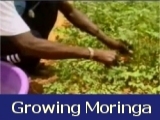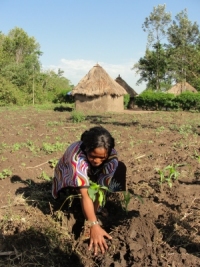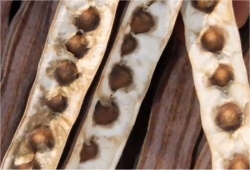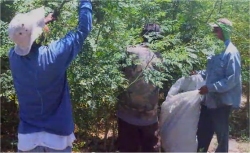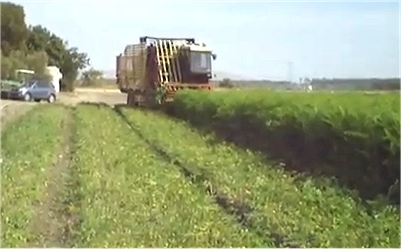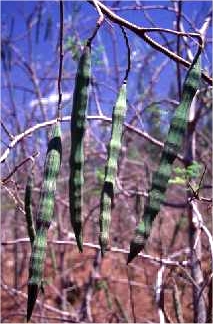
|
|
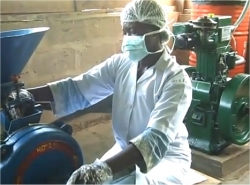 |
• Purchase of gasoline-powered motor
pump
• Purchase of motorized grinding mill for leaf powder
production
• Water filtration eg Drop of Hope BioSand water filtration.
• Water catchment from roof into 400gal tanks
Total estimated cost US $15,000
|
|
Moringa seeds are soaked overnight prior to
planting just 1 cm below ground. Once you have covered the
seeds, thoroughly water the soil. Whether you plant the seeds
in bags, or right into the ground, they will need a thorough
soaking every day, until you see the seedling emerge from
the soil.
|
|

|
Once your Moringa have sprouted, they can
be watered once every other day, until they are about 18
inches tall. Then, once a week will be sufficient. Moringa
is a very drought resistant plant but will require wartering
until established.
|
Moringa trees can also be planted
very close together as a field crop, at a spacing as close
as ten to fifteen centimeters.
When planted as a field crop Moringa can be
harvested frequently. This technique produces a large amount
of usable green matter from a relatively small amount of space.
Recommended to plant the trees in an east-west
direction
|
|
| 
|
Moringa can be grown intensively with no
irrigation and small amounts of fertilizer.
Harvesting the leaves every 75 days—four
crops in a year with around 100 tons of green matter per
hectare the first year, and 57 tons per hectare the second
year.
|
| If however the Moringa plantation
is irrigated and fertilized harvesting can be achieved every
35 days—nine crops per year—with a total yield
of 650 tons of green matter per hectare. This yield can be
consistent from the same plants for seven years.
|
|
| 
|
Using this technique of intensive cultivation,
plots of Moringa are planted on a rotation schedule, so
that there is an ongoing supply of green matter.
|
| The plants are harvested 10
cm above the base, and all of the leaves and green shoots
can be used. The green tops grow back in 35 to 75 days, and
are ready to be harvested again.
|
|
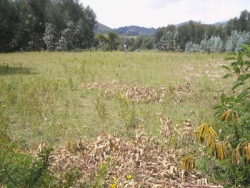 |
Moringa can be planted as a
living hedge, plant the seeds into the ground about 1/2
- 1 meter apart. Pinch back every other new leaf growth,
to force the tree to grow like a bush, and once they are
about 1/2 meter tall, cut the branches in half lengthwise,
and pinch back the new leaf growth that will sprout out
at the top of the Moringa tree.
|
| Moringa can be
planted 1 meters apart, in rows that are at least 2 meters
apart, for easy weed removal and walking through the rows.
This will allow the Moringa to grow tall and mature. These
mature Moringa can provide pods for eating and seeds for propagation
or the production of BenOil.
|
|
• Once established Moringa sends a tap
root down to the water table making it drought tolerant.
• It is a nitrogen fixer and can be used as a fertilizer.
• it is a livestock feed
• It grows tall and lacy if left unchecked and so is good
for forest gardening
• The seed is used to clarify water
• The seed oil never goes rancid and is used in fine machinery
the seed oil burns clean and so is a good source for heat and
light
• It is a sustainable food source for third world countries
where malnutrition is prevalent.
SOWING SEEDS OF SUCCESS - MORINGA CURRICULUM
|
|


